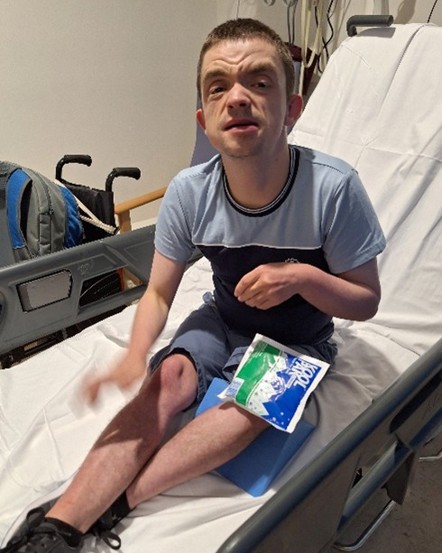Rare Conditions Are An All-Too-Common Story

Erika Fässler-Nelson
I’d been waiting all afternoon to talk to the attending doctor, and he still hadn’t arrived by eight in the evening.
But as luck would have it, he of course arrived at my daughter’s bedside just minutes after I’d left the unit.
My husband was still there pacing back and forth like a point guard next to Mia’s bedside, so I knew she was in good hands.
The long awaited talk with the attending doctor is always a special occasion in the hospital, not only because we get to talk to the person that is calling the shots, but because it is also the chance to explain the intricacies of our daughter’s rare diagnosis.
Being able to convey these details sometimes can make a difference in the clinical care that is provided.
Carrying the badge of a rare diagnosis means that nine times out of ten, even the most versed doctor will not have heard of your child’s condition—or let alone even met another child with the same diagnosis.
It also means that the hidden unknowns of the rare disease can often cause surprise side effects to typical medical interventions.
Parents of children with rare diagnoses spend a great deal of time researching and networking through the glory of today’s social networks.
Gathering information and anecdotal experiences, basically anything that can paint a picture of the rare condition at hand and hopefully allow for some insight into medical care.
My husband did his best to convey the prevailing characteristics of our daughter’s diagnosis, even spelling out the syndrome twice to ensure that the doctor could do his own research.
So I was a little surprised, when I later read the patient medical history, which read, ‘Patient has an extremely rare genetic disorder called Phasing McMurphy Syndrome. It is not listed in any database.’
I had to laugh at that one, it sounded more like a popular pub than a diagnosis to be reckoned with.
My daughter has a rare syndrome, but it actually is recognized internationally with an estimated 1,000 children and adults currently diagnosed worldwide.
She happens to be the only registered case in Switzerland, even though statistically there should be more.
It is called Phelan Mcdermid Syndrome (P-MS), and involves a micro deletion on chromosome 22, so it is sometimes also referred to as 22q.13 Deletion Syndrome.
Sadly, this is not an isolated scenario.
Families with rare diagnosis children are born into the role of advocate from day one, mostly out of necessity.


